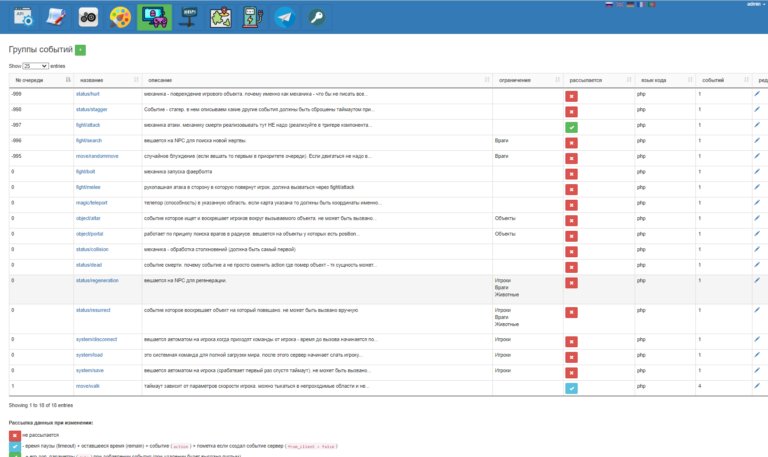Perfect review (UGC)
And I want to trust.
I want to enter the space of ideal people and receive ideal experiences from them. Ideal people are people who are friendly, polite, smart, kind, sympathetic, empathic, erudite, moral, successful. An ideal experience is the experience of a really tested product or service, objectively analyzed in detail, with high-quality photos, videos, sound, in comparison with analogues.
In reality, we see accounts instead of people; instead of friendliness, we often see aggression, along with impoliteness, stupidity, meanness, anger, limited specific experience, etc. The review, at times, is written without a real test, without a detailed analysis of the object, chaotically, not characteristically, not optimally, monosyllabically.
I wouldn’t want to read 70% of the reviews at all. Reviews are a strange format, random: what you come across is what you consume. At the same time, you won’t be able to close your eyes to reviews and mentions of users on the Internet. And the more popular the brand, the more mentions about it on the Internet. UGC is a serious data channel that is best managed to avoid the reverse process of negative reviews consuming a sound business idea.
Trust in reviews
A key problem with user-generated content is unreliability. The credibility of a review of a particular product can range from high to low, depending on the individual characteristics of the author and reader of the review. Quite often, users do not trust reviews, noting that the review is fake.
If you look deeper, trust in a review can be ensured with the following tools.
Characteristics of a Revocation Trust:
Trust the author of the review: the UGC consumer knows the author
Trust the review author's account: a UGC consumer can clearly identify the review author and his account on the Internet by comparing all the data of the review author and the account through which the review was posted. When there is a 100% coincidence of the data specified by the author of the review about himself in his account, and this data coincides with the data specified in the user’s author’s documents.
Trust in the site on which the review is posted: review moderation period before publication, account verification by the site, frequency of publication of reviews by the author on a specific site.
Trust in the script/process of posting a review: for example, when a person in a real geo-point receives an offer to share their experience of interacting with a geo-point while being there.
Trust in the content of the review: the scope of the review, characteristic details of the user experience, individual supporting documents, the personal impression of the review author about the subject of the review.
Only a few can take into account all the characteristics of a trust revocation. At each stage of the review verification process, the level of data inaccuracy increases. You can write a true review from a fake account. You can write a fake review from a real account. You can write a real review from a real account, but the user experience is unreliable. It can be presented reliably, but the user experience is uncharacteristic.
How search algorithms within a site index reviews
Search algorithms within the site evaluate the account of the author of each review according to the following parameters:
Unique IP address (Internet Protocol Address – a unique network address of a node in a computer network).
MAC address (Media Access Control – a unique identifier assigned to each piece of network equipment). MAC addresses must be different so that the search engine can see that reviews are left from different devices.
Unique phone number to confirm your account
Unique email
Account age
Usefulness of the review
Account activity
Unique photos/videos of the object about which the review was left
By analyzing the specified parameters, sites select reviews that you can trust. However, the review and account verification scripts on each site with the function of posting a review are different. There is no ideal. Reviews of the “first generation” (UGC scripts from the 2000s) can be given the status “untrustworthy”. “Second generation” reviews are trying to be more reliable: the “leave a review” function only for those who bought the product on the site, the mandatory presence of a photo and a receipt, requirements for the usefulness of the review content. However, any UGC script can be simulated (simulated) for the purpose of data manipulation.
Is the idea of a single review effective?
Some time ago, among Internet reputation management specialists, an idea arose to create a single state-type review site.
Probably, the review verification system through State Services is one of the most reliable scripts at the moment. However, by complicating the review verification process, a significant portion of the review authors’ traffic will be cut off. Many people simply won’t want to write a review. At the same time, interested parties – the owners of a state-type review site – will be able to influence reviews technically, and delete those reviews that the owner of the State Reviews site considers unnecessary. Reviews will be censored.
The ethical aspect of creating copyrighted content by the reviewer
The author of the review creates copyrighted content that does not fall under intellectual property laws. In theory, it is possible to challenge the right to republish reviews by review aggregators, but there are not many such cases and they have not gained wide popularity.
In general, UGC is content that is not assessed for the value of its authorship. The rating is important in the review; real experience with characteristic signs of benefit to potential users; photo showing the actual condition of the object.
The brand owner understands that he needs a lot of positive feedback about the use of his product. At the same time, the receipt is more important for the brand owner. And if the offer to leave a review for a customer is too stressful for the client, who may change his mind about making a purchase, the brand owner is more likely to refuse the offer to leave a review.
Incentivized traffic scripts should be simple. If the client has made a purchase, it is better to offer to leave a review unobtrusively, in one click, in a usable manner, and also to motivate the client with discounts, points, products, and services. Still, the author of the review took the time to write a review: he donated his “intellectual property” to the brand.
Legal aspects of the presence of reviews on the Internet
When does a review come to the attention of lawyers? When a brand representative sues the author of a review or the site on which the review is posted and demands that the review be removed. A court decision to remove a review based on a specific link is usually sufficient for the site to remove the review. The process of removing false reviews through the courts is a labor-intensive process. If one of the parties considers the process unfair, the review may appear again, via another link, or, another option, when the brand’s account on the site may receive a stamp with negative data about business processes within the brand.
Legal mechanisms work within sites with the “leave a review” function; they are different, but they all operate within the legal framework of the country in whose domain zone they are hosted.
If the review uses the words “swindler”, “thieves”, “crime” – these terms must be supported by documents, otherwise the review is unreliable.
Negative reviews are more likely to be shared than positive ones. A negative situation charges the author of the review to take action; he does not need to be further motivated. And if the author of the review has not yet gotten enough sleep, then all: “In normal companies the sky is bluer, the grass is greener” – this will be another statement of a chaotic aggressive position. All false accusations can be disputed.
Instead of a conclusion: what is an ideal review?
The ideal revocation is listed in the Characteristics of a Revocation Trust section of this article.
At the same time, now I have an idea for a truly ideal review. For example, reviews of a psychological school where group sessions are held. 15 minutes before the end of the session, the psychologist asks to write a review in the phone notebook about what the participants just felt and lived. Plays calm music and gives participants space and time. After this, the psychologist asks those who trust the process and space to publish this review on the Internet. And then gives all participants a direct link to copy/paste the written review, and also gives a specific title that the review authors need to continue. The formalized part of the title already contains a key query for which it is necessary to be present in the TOP 10 of Yandex and Google.
Now there are a lot of cool schemes and constructors – leave reviews: Yandex.Taxi, Shokoladnitsa, Wildberry, etc. Space and time are in short supply. The ideal review is a lived experience that has been given space and time to be articulated.





